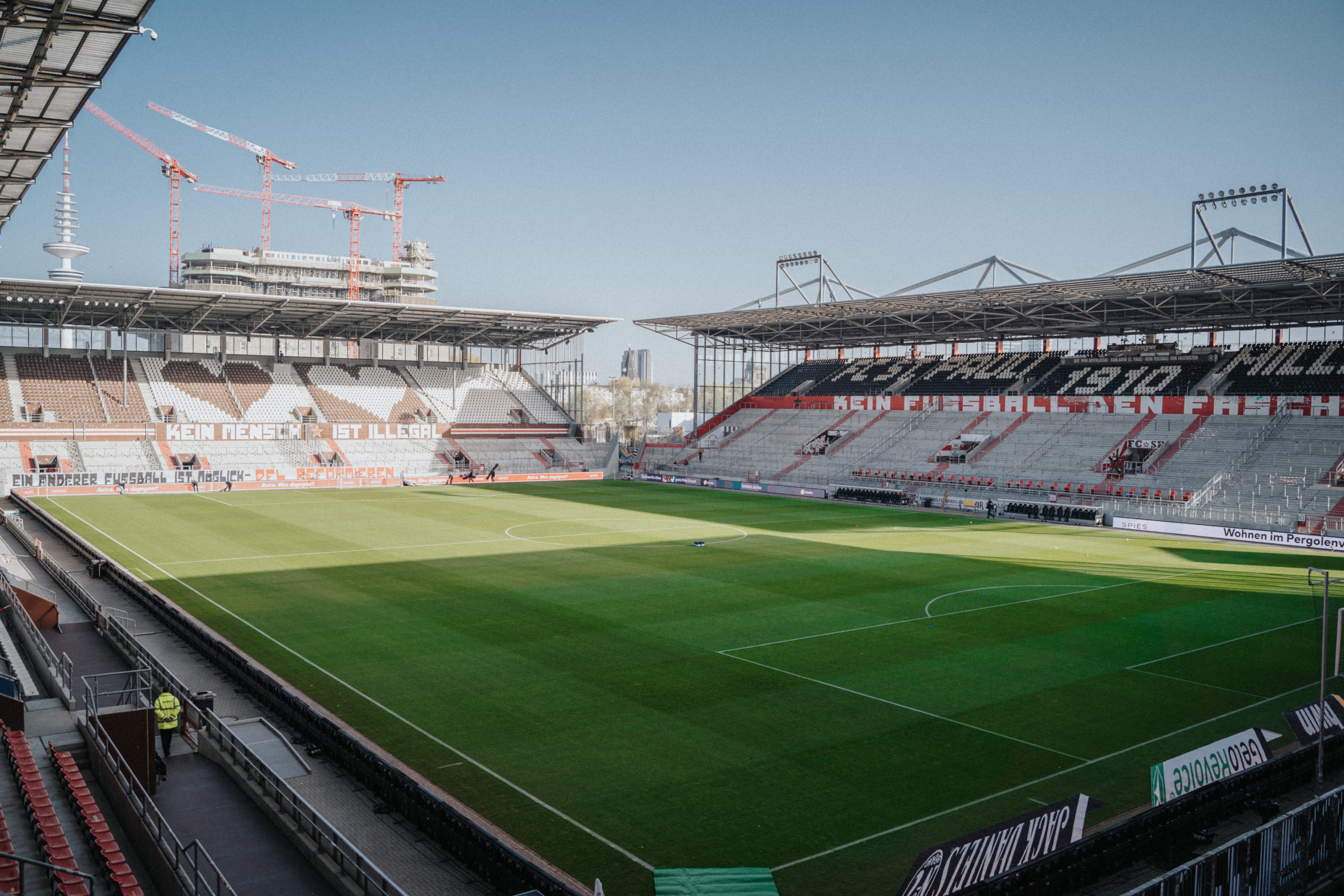
“Another football is possible”:
Hamburg | Hamburg based FC St Pauli is the first professional football club in the world to complete a Common Good Balance Sheet in line with the values of the Economy for the Common Good (ECG). The club, known as a pioneer for anti-racism, anti-discrimination and inclusion, was able to achieve a very good result with 527 points in this exercise, verified by independent auditors. A score that puts the “buccaneers of the league” at the top of the sustainability league alongside pioneers such as Greenpeace, Germany´s leading organic juice producer Voelkel or the multiple award-winning outdoor textile company Vaude.
The Common Good Balance Sheet is a voluntary corporate social responsibility (CSR) audit that provides information about the contribution that companies and organizations make to the common good. Based on the Common Good Matrix, it records the contribution to the common good that arises from all the company’s activities. Due to its holistic approach, it covers common CSR reporting standards and goes well beyond them. Esin Rager, as Vice President at FC St. Pauli specifically responsible for the area of sustainability says: “The systemic approach of the Common Good Balance Sheet creates a 360-degree perspective on one’s own actions. We consciously chose this value-oriented audit because we were looking for an instrument that would enable us to critically evaluate our goals and measures.
The number of points achieved is pleasing but less important to us than the insights we gained from the process itself. Another football is possible. Especially when we never rest on our laurels.” “Less talk, more action – and we also have it checked,” emphasizes Franziska Altenrath, who heads the strategy, change and sustainability department at FC St Pauli. It is important to be independently audited to see where we stand. This allows us to better identify both the opportunities and risks of our strategies. The balance sheet sharpens our profile and at the same time shows where we can improve.”
Jutta Hieronymus, board member of ECG Germany says “The world is currently facing a multitude of crises. We can only respond to them if we transform the economy and society as a whole. A club with a global popularity like FC St Pauli is a prime example of how this can be achieved. It shows that long-term success in professional sports is also possible when ethical, social and ecological goals are reconciled with economic needs.”
FC St Pauli was able to score points for a variety of projects that are otherwise rarely found at professional football clubs. These include, for example, the exclusion of ethically critical sponsor categories such as sports betting, the creation of guidelines on diversity, a gender-balanced composition of the supervisory board, ecologically sustainable and fairly produced merchandise and the switch to organically produced and vegan catering. Esin Rager: “The challenges for value-oriented business can be well explained using the simple example of vegan and organic sausages. We see ourselves as a club for everyone. An organic bratwurst currently costs around 90 cents more than a conventional product which evidently causes more animal suffering, more environmentally harmful farming and usually worse working conditions for those involved in the production process. We can only take our fans along this path if we credibly explain the reasons and the necessity for this step. The Common Good Balance Sheet is one way to do this. And above all, it is independent proof that we are not doing this as a sustainability fig leaf, but that we are really serious about it. 10,000 sausages per game makes a real difference.”





